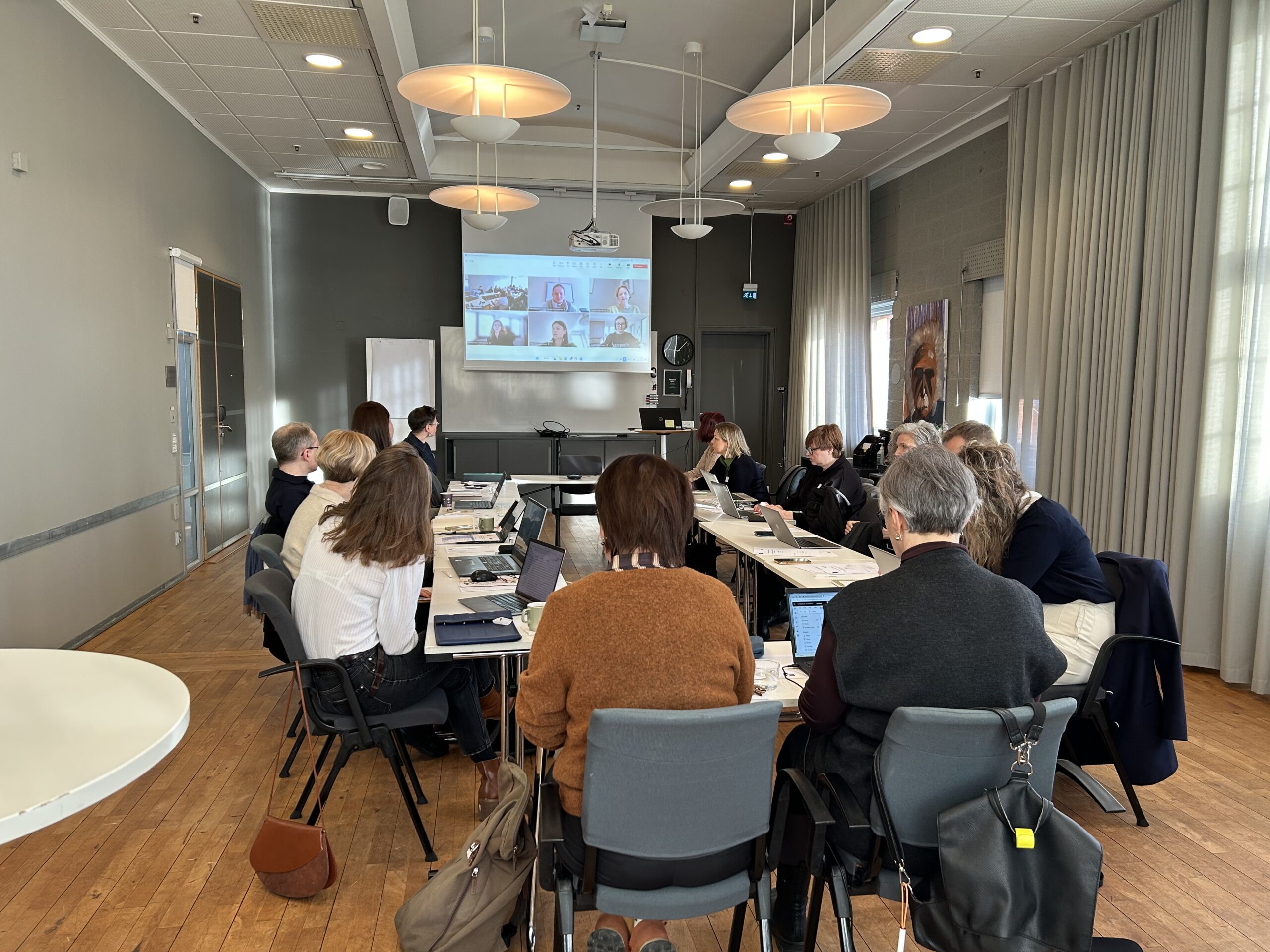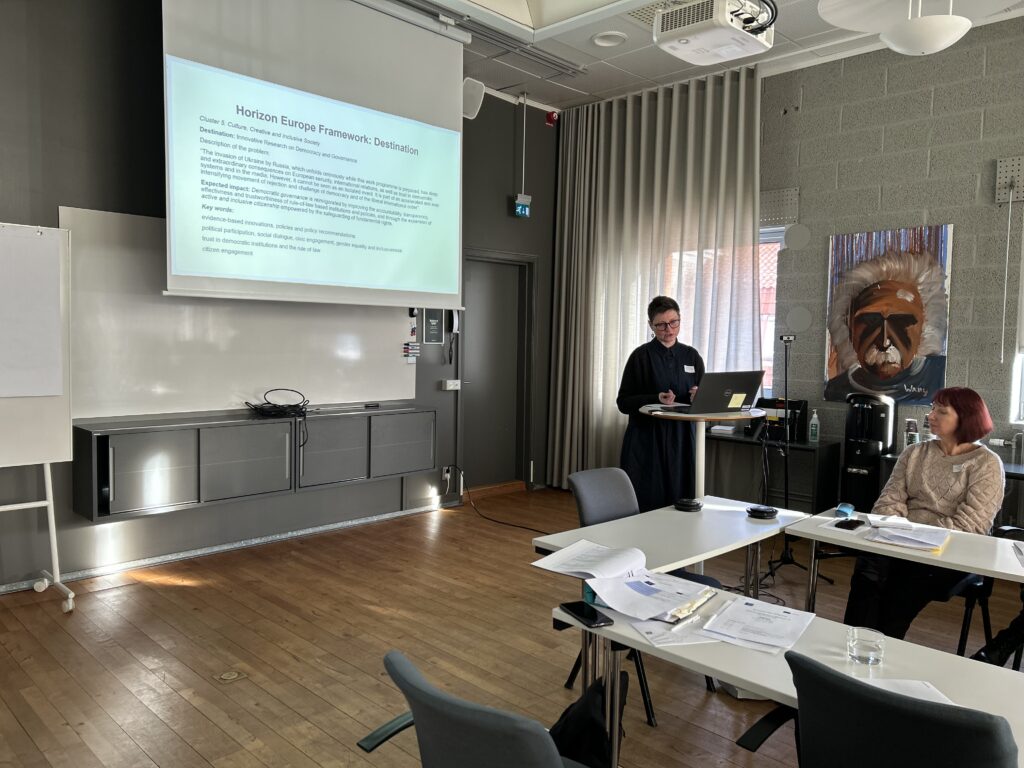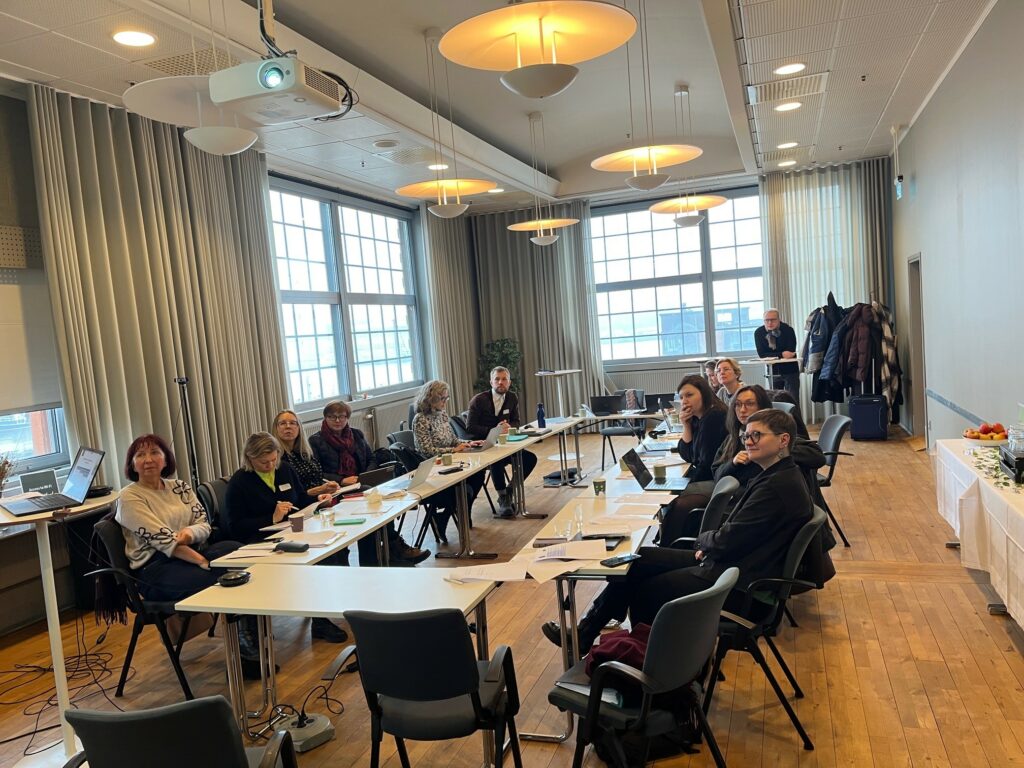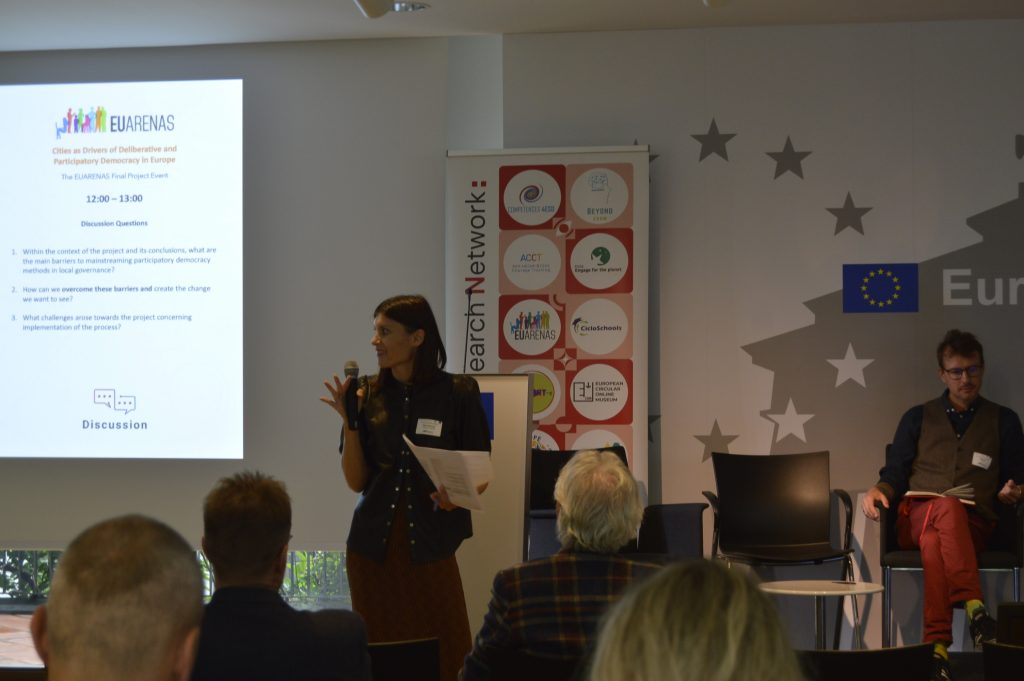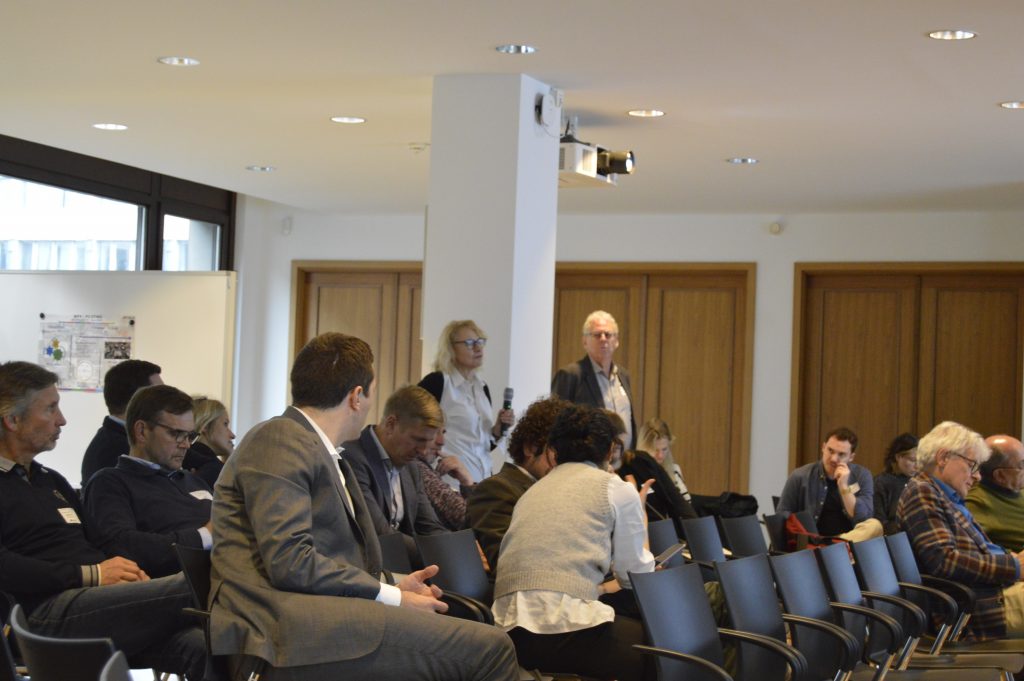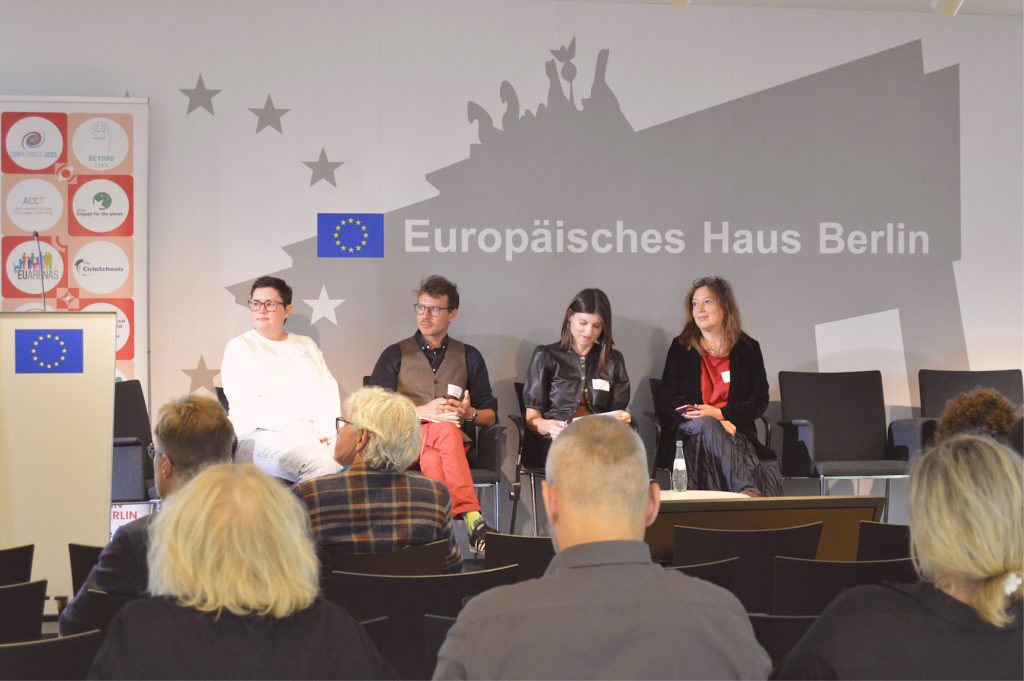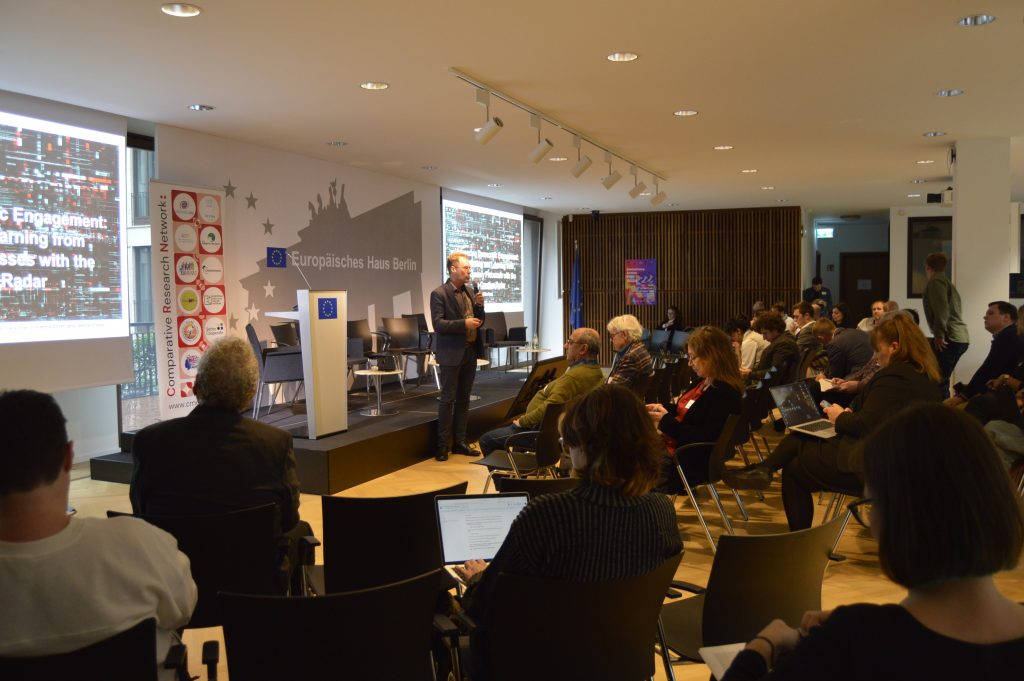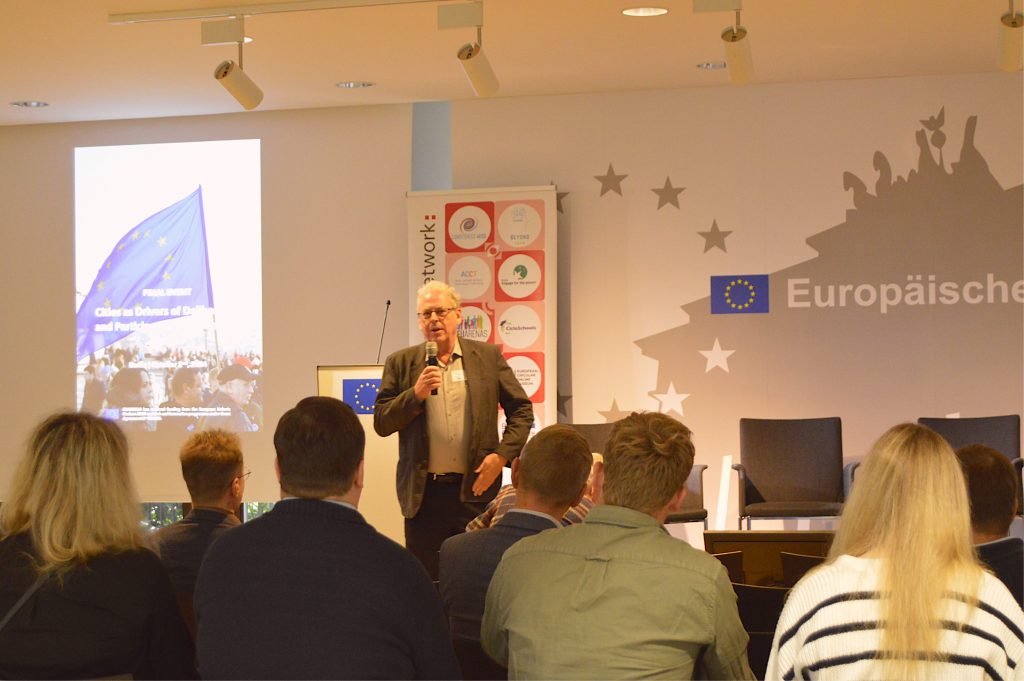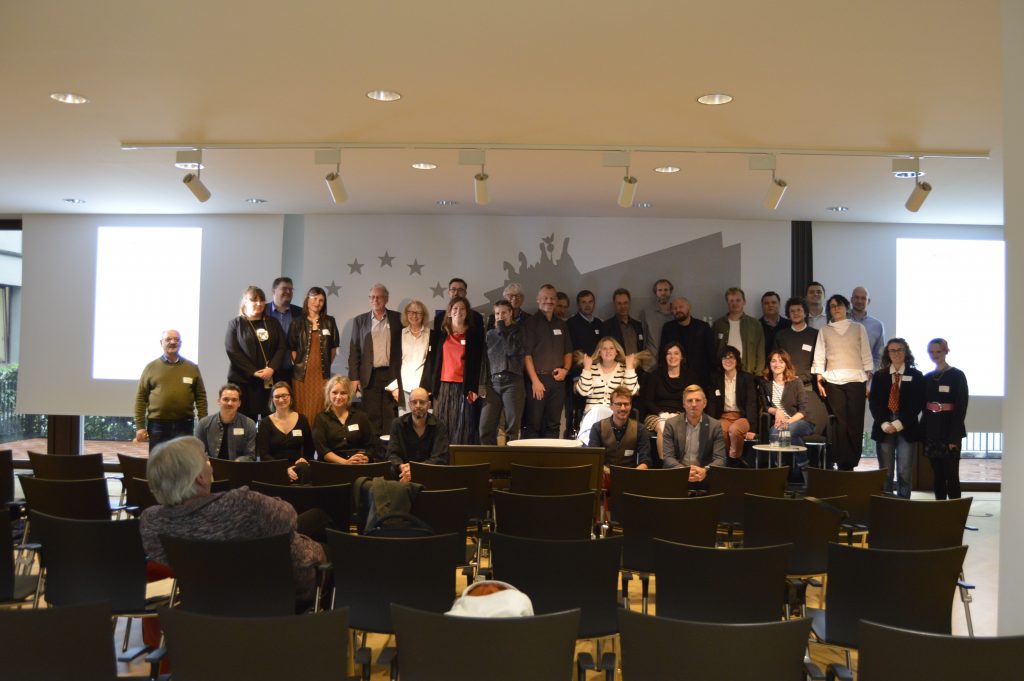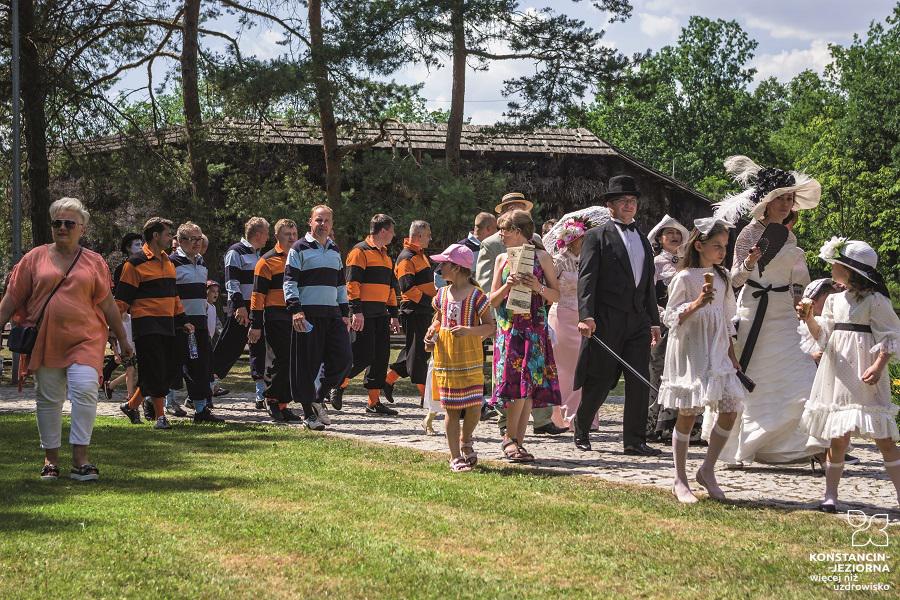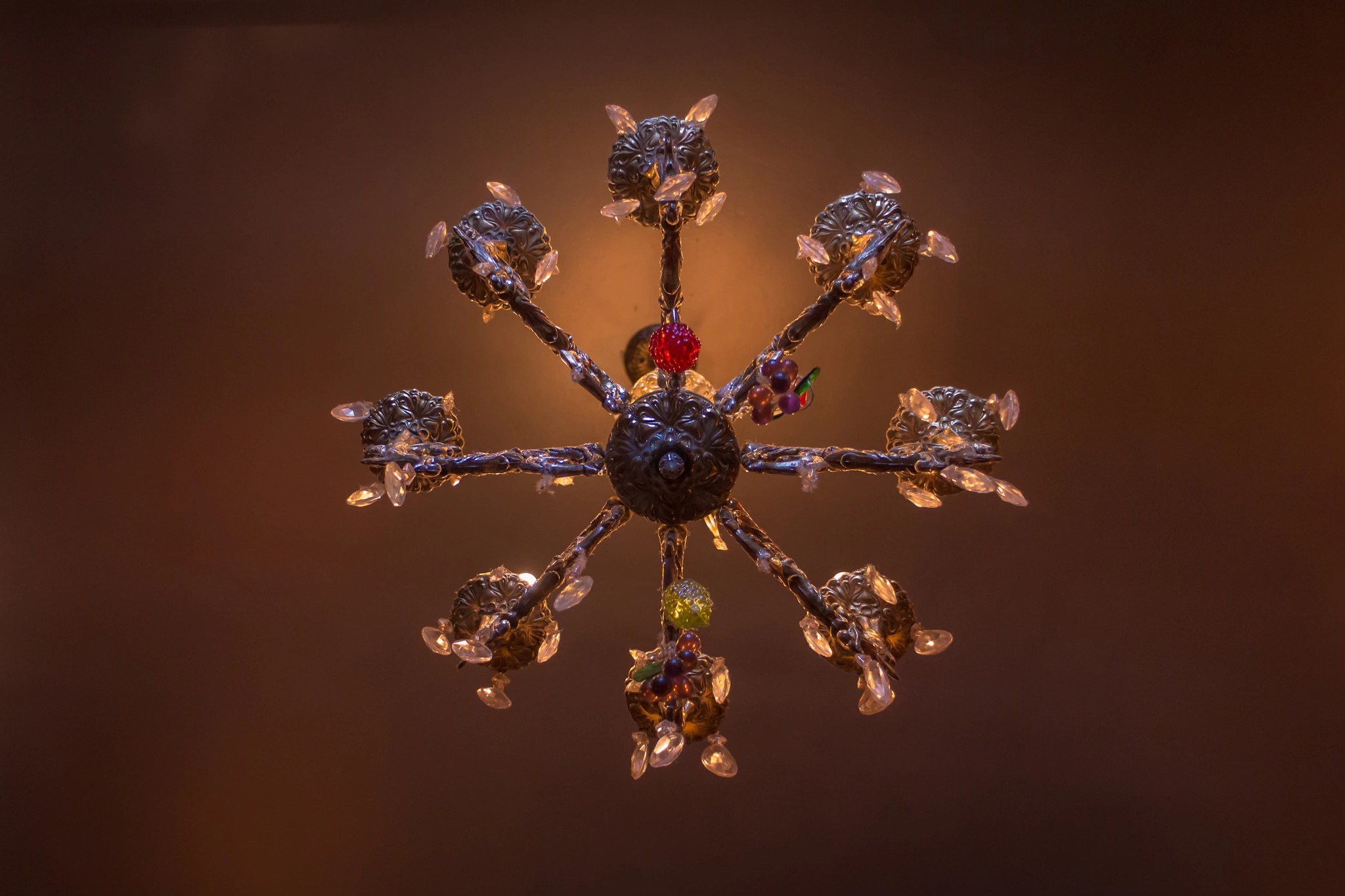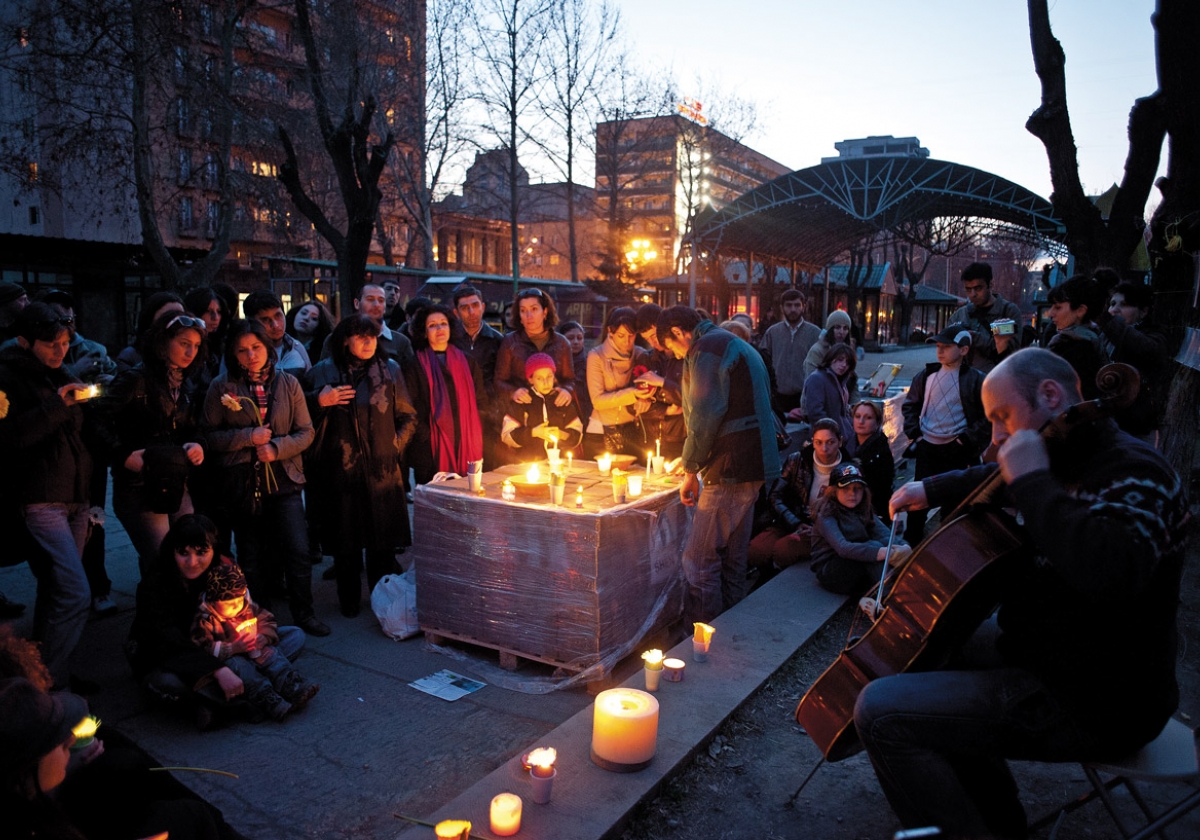On 2 October 2024, Prof. Iwona Sagan and Dr
Maja Grabkowska represented the UG team at the conference ‘Cities as Drivers of
Deliberative and Participatory Democracy in Europe’ summarising the EUARENAS
project. They were accompanied by a member of the Community of Practice project
working group, Dr.-Ing. arch. Hanna Obracht-Prondzyńska from the Department of
Spatial Studies. The meeting took place in Berlin’s Europäisches Haus on Unter
den Linden.
The aim of the conference was to present and
discuss the results of almost four years of research and action on
participatory and deliberative practices in European cities. The event brought
together activists, practitioners, citizens, policy makers and representatives
of local, national and European government to share their experiences,
questions and challenges in integrating participation and deliberation into
democratic processes at the local level in Europe.
The main question that guided the conference
was: how to foster active citizenship, social agendas and political life
through civic participation and democratic innovation in European cities?
The meeting was opened by the project
coordinator, Prof. James Scott from the University of Eastern Finland, who then
handed over the floor to the hostess of the venue, Manica Hauptman from the
European Commission Representation in Germany. The first panel focused on the
added value of participatory and deliberative practices, with speakers
including policy analyst Anna Paola Quaglia from the European Commission’s
Joint Research Centre. Afterwards, the experiences of the cities involved in
the project pilot were presented by Dr Krisztina Keresztély from the
Comparative Research Network. Next, invited participants and participants in
these activities from Gdansk, Reggio Emilia and Võru shared their own
reflections on the subject. We also had the opportunity to play a game prepared
by Lukács Hayes and Giovanni Pagano of Eutropian, authors of the project’s
Experimental Methods of Participation Toolbox.
The next panel of the conference focused on the
research and activities carried out in the four leading components of the
project – Theory, Case Studies, Piloting, Foresight. Their coordinators – Dr
Wojciech Ufel from SWPS, Dr Maja Grabkowska, Dr Krisztina Keresztély from CRN
and Sarah Henderson from People’s Voice Media – talked about the research
results of their teams, addressing three issues. The first concerned the main
barriers to integrating participatory democracy methods into mainstream local
governance. The second referred to ways of overcoming these barriers and
creating the conditions for the desired change. The third, on the other hand,
covered the challenges that emerged from the implementation of the project. The
panellists’ statements were followed by a discussion with the audience.
After the lunch break, we heard from Michal Zorena of the City of Gdansk on the URBACT project’s objectives for involving local government officials and women more fully in supporting innovation in the public sector and promoting civic engagement. Next, Prof. Mikko Rask from the University of Helsinki presented the findings of the implemented participatory project Co-Creation Radar, which aims to involve male and female residents in decision-making processes using tools supported by artificial intelligence. This part of the conference was concluded by a panel with a representative from LUISS University, who outlined the recommendations resulting from their research conducted as part of the project. The conference was the last opportunity for the full project consortium to meet. At the end, all the attendees thanked the project coordinator, Prof. James Scott, to which our entire team joins, hoping to continue the scientific collaboration in the near future.
